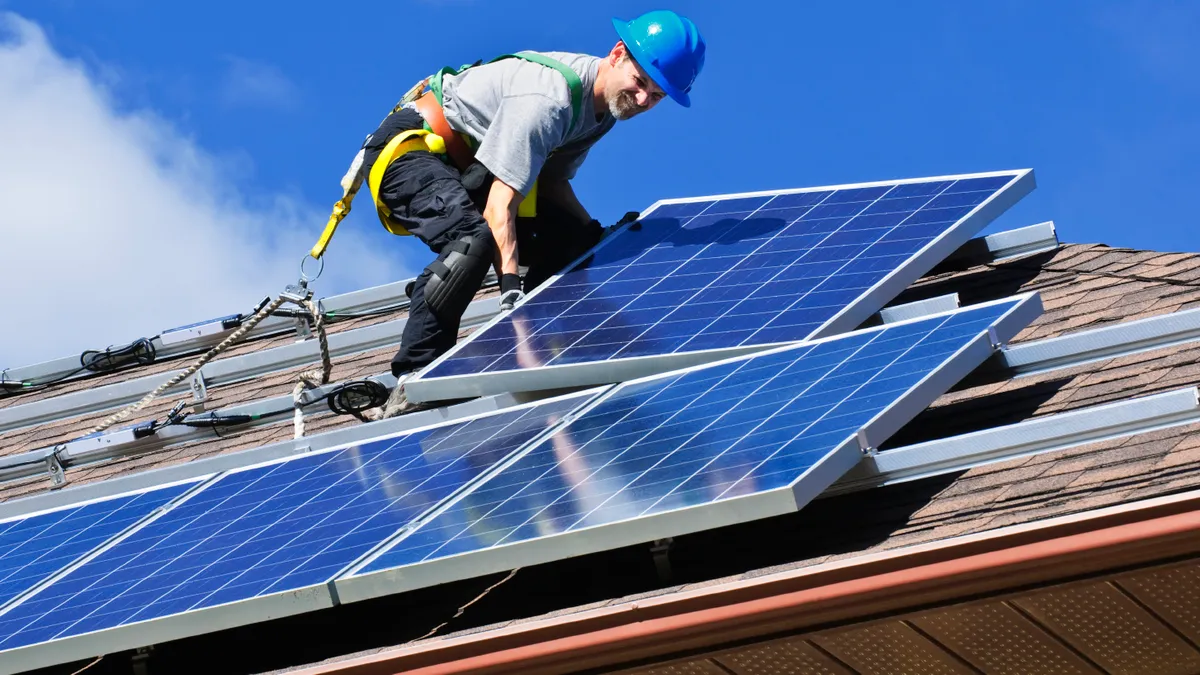Dive Brief:
- The South Carolina House unanimously advanced a bill on Thursday to lift restrictions that would stifle distributed solar deployment.
- H.B. 3659 would lift the net metering generation cap and extend the program for two years, which could help lower energy bills for customers with solar installations. The state's power bills remain high after the cancellation of the overpriced V.C. Summer nuclear project.
- The bill, if passed by the Senate and signed by the governor, would allow homeowners who install new solar panels to receive the same retail net metering rates as customers who signed up to the program in the past. The Public Service Commission (PSC) will have until 2021 to determine a successor program.
Dive Insight:
H.B. 3659 would give an important lifeline to distributed solar in South Carolina, which could screech to a halt as utilities in the state meet their net metering caps.
During the last legislative session, the Senate voted down a bill that would have lifted the state's 2% generation capacity net metering cap to 4%, after determining the legislative vehicle for the program violated procedural rules.
Duke Energy Carolinas reached the cap in July, although the utility received an extension from state regulators while negotiations continued for the future of the policy. Other utilities were also approaching that cap, creating uncertainty in solar investments, according to advocates of distributed renewable resources.
"The arbitrary cap on solar energy in South Carolina is rapidly approaching and could severely damage the state’s free-market energy economy," Matt Moore, chairman of the Palmetto Conservative Solar Coalition and former chair of the South Carolina Republican Party, said in a statement.
The net metering policy allows residents with rooftop solar to lower monthly utility bills, although some utilities had alleged that the subsidy shifted solar customers' costs onto other ratepayers.
The legislation contained numerous elements garnering support from independent solar developers, conservationists and utilities, such as the inclusion of details on how large-scale solar projects generating power for utilities will be regulated.
The PSC will establish a new proceeding to review and approve rates for the large facilities, according to the bill, to streamline the process and facilitate reasonable power price agreements. Large energy customers would be allowed to access more savings by purchasing power directly from renewable energy suppliers instead of through the utility.
The bill would establish a neighborhood community solar program targeting low-income customers. Duke Energy Progress and Duke Energy Carolinas have announced community solar offerings in the last year.
Following the end of the 2018 legislative session, the South Carolina Office of Regulatory Staff led a series of stakeholder meetings to develop the future of the policy, or "net metering 2.0."
The Senate, followed by Republican Gov. Henry McMaster, will need to approve the bill.
"Given the overwhelming bipartisan support for this bill in the House, the jobs at risk from impending net metering caps and billions of dollars waiting to be invested in local South Carolina communities, we feel confident that the Senate will act quickly on this compromise bill to ensure the future of the solar market in the state is bright," Maggie Clark, Southeast state affairs senior manager for SEIA, said via email.














